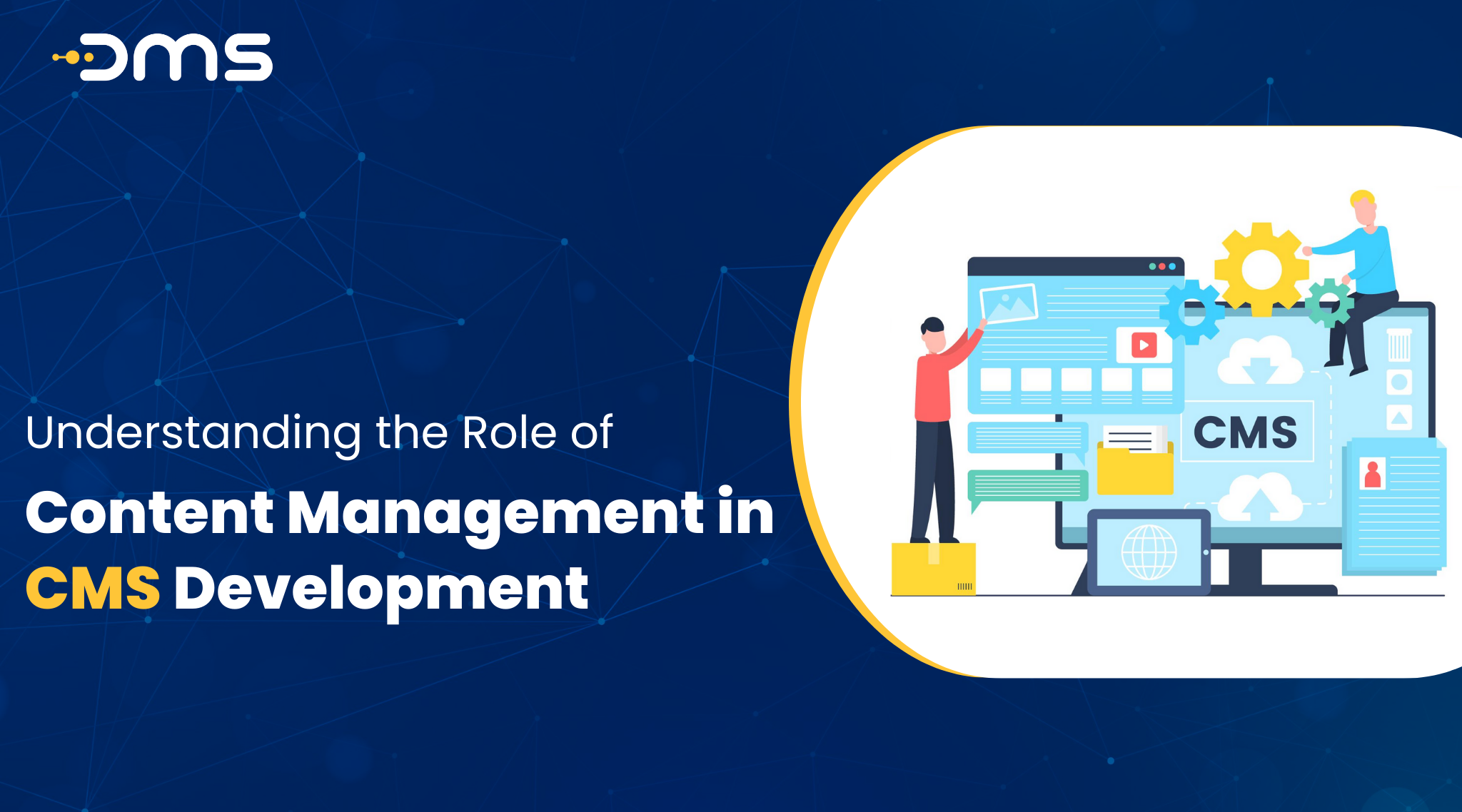The significance of having a solid content management system (CMS) cannot be overstated as businesses keep shifting more of their operations online. In this case, understanding the role of content management in CMS development becomes the priority for many kinds of businesses Unfortunately, many businesses continue to misunderstand how content management functions in CMS development, which leads to inefficient digital platforms that fall short of their intended goals.
Introduction:
The main objective of CMS development is to build a strong platform that enables businesses to effectively manage and publish their online content. CMS is essential for organizations that want to create a robust online presence that can reach a broader audience, engage with customers, and drive conversions.
In essence, CMS development involves designing and creating a system that enables users to manage the various aspects of their digital content, including text, images, videos, and audio. The CMS should provide an intuitive interface that allows users to create and publish content quickly, without requiring any technical expertise.
The Role of Content Management in CMS Development:
Simplifying Content Management
One of the primary roles of content management in CMS development is to simplify the content creation and management process. An effective CMS should offer users a simple user interface that allows them to quickly and effectively publish and manage their content.
By simplifying content management, CMS development ensures that organizations can focus on creating high-quality content that resonates with their target audience, rather than spending too much time managing their digital assets.
Enhancing Content Distribution
Another critical role of content management in CMS development is to enhance content distribution. With a robust CMS, businesses can easily distribute their content across multiple channels, including social media, email, and other digital platforms.
A powerful CMS should allow organizations to create and publish content in different formats, such as articles, blogs, videos, and images, and then distribute the content across various channels without any hassle.
Improving Content Governance
Content governance is another critical role of content management in CMS development. A robust CMS should enable businesses to control the various aspects of their digital content, such as access, security, and compliance.
By implementing robust content governance features, CMS development ensures that businesses can manage their digital assets effectively, without worrying about issues such as data breaches or compliance violations.
Conclusion:
In conclusion, content management plays a critical role in CMS development, enabling businesses to create and manage their digital content effectively. A powerful CMS should simplify content management, enhance content distribution, and improve content governance, ensuring that businesses can focus on creating high-quality content that resonates with their target audience.
As businesses continue to move their operations online, CMS development will continue to play an essential role in creating a robust online presence. By understanding the critical role of content management in CMS development, organizations can create digital platforms that engage with customers, drive conversions, and achieve their intended purposes.


